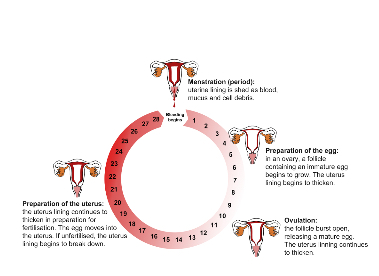Their sources to create this comes from:
• World Health Organization (www.who.int)
• Go Ask Alice! (Columbia University) (www.goaskalice.columbia.edu)
• Teen Talk (Planned Parenthood)(www.plannedparenthood.org/teen-talk)
• ABC of All the Questions We Never Dare to Ask (Kwela Books and Weaver Press)
• Discovery Health Sexual Health Center (http://health.discovery.com)
• Auntie Stella: Teenagers talk about sex, life and relationships (www.auntiestella.org)
WARNING: some graphic images may appear below.
Anal Sex

What is anal sex?
Anal sex is the stimulation of the anus during sexual activity. It can be done in several different ways: manually, orally, or by anal intercourse.
This is NOT “doggie style” sex which means that the penis is inserted in the vagina from behind. Anal intercourse is the insertion of a man’s penis into his partner’s rectum. Although anal sex is often thought of as an activity that only same-sex male couples engage in, many opposite-sex couples enjoy it too.
Is anal sex enjoyable?
Some people think so and prefer to have sex in this way; others find anal intercourse uncomfortable or painful. It is helpful to use a lubricant before engaging in anal penetration because the anus is not self-lubricating. Anyone brought up to believe that anal sex is “unnatural,” wrong, or a sin may have difficulty accepting this practice. While anal sex is something that some couples choose to do, make sure it is something that you and your partner want to do. Neither you nor your partner should feel forced or pressured to have anal sex and should only do so if you both want to.
Should my partner and I use condoms during anal intercourse?
Yes. Just like with vaginal intercourse, it is important to use a condom during anal intercourse. The tissue in the anus is fragile and the skin can tear easily. In fact, because the lining of the rectum tears more easily than the vagina’s lining, the risk of HIV transmission during anal sex is higher than during vaginal intercourse.
If the skin breaks or if there is bleeding during anal sex, there is a possibility that bodily fluids containing HIV and other STIs will be transmitted from one partner to another. Wearing a condom during anal intercourse will provide you and your partner with protection against these infections.
Casual Sex

What is casual sex?
Casual sex can mean many things. It can sometimes mean extramarital sex, sex in a casual relationship, one-time sexual encounters, sex outside of a relationship, or sex in the absence of emotional attachment or love. Some common terms for casual sex include: hooking up, booty call, friends with benefits, etc. Do I have to be in a relationship with someone when I have sex with him or her? People’s ideas about casual sex range from conservative and/or religious views to liberal views. It’s up to you to decide what is right for you.
Do I have to be in a relationship with someone when I have sex with him or her?
People’s ideas about casual sex range from conservative and/or religious views to liberal views. It’s up to you to decide what is right for you.
Getting to know other people is an important part of being a teenager or young person. Many adolescents have close friendships or relationships with classmates or other peers that may involve going to a party, movie, or other events together. However, being honest about your intentions – and making sure that the people you are involved with understand your intentions – is very important.
What should I know about casual sex?
Casual sex is not uncommon, and it is an issue that affects many young people.
Some people may think that casual sex is more exciting because it is “naughty” or an act of rebellion. There is nothing wrong with thinking that sex should be fun. Due to the nature of casual sex though, it’s quite likely that you won’t know the sexual history of your partner and what diseases she or he could potentially have. It could also be the case that they are unaware themselves of any infection they might have or, possibly, are just not going to tell you.
Remember that even if you approach the situation as ‘just a bit of fun’ it doesn’t mean you don’t need to think about what you are doing and how to protect yourself.
Circumcision
What is male circumcision?
Circumcision is the surgical removal of the foreskin, the fold of skin that covers
the head of the penis. As a result of circumcision, the head of the penis is fully exposed when the penis is flaccid. The procedure can be performed at any age, and not all males undergo circumcision. In some settings boys undergo traditional circumcision in a community-based setting. In these cases, sometimes the foreskin is only cut or partially removed.
Why do men get circumcised?
Men are often circumcised for religious, cultural, and medical reasons.
Sometimes it is done at birth. In other settings, circumcision is a rite of passage to manhood. Circumcision is also performed in the context of HIV prevention. The World Health Organization (WHO) has found that male circumcision can reduce HIV by approximately 60% among men who have sex with women. However, this is only true when all of the foreskin has been removed. Even then, remember that male circumcision provides only partial protection against HIV infection and should be accompanied by the use of condoms.
Will circumcision have an effect on my sex life?
Excitement, erection, and orgasm are all still possible after circumcision. But remember that sexual pleasure and sensitivity are two different things. It’s reasonable to assume that being circumcised will affect how sex is experienced by some people, but there are likely many other factors that have a larger impact on the quality of sex and how much pleasure you and/or your partner gets from that sex.
Dry Sex versus Wet Sex
What is dry sex?
Dry sex is sex without the natural lubrication found in the vagina. Some women
use various methods to “dry” or “tighten” their vaginas. These methods include topical antiseptics, bleach, snuff, talcum powder and salt. It is believed by some that a “dry” or “tight” vagina is a clean vagina. This is not necessarily true (see below).
Some believe that a “dry” and “tight” vagina will increase sexual pleasure for the male partner, but it is important to remember that dry sex is often painful for the female partner.
What is wet sex?
Wet sex is sex without disturbing the natural lubrication of the vagina.
Lubrication is naturally produced in a women’s vagina and is present at all times but increases during sexual arousal. This helps to ensure the pain free insertion of the penis into the vagina.
A wet vagina is sometimes believed to be a place where sexually transmitted infections live, waiting to be spread through sex. This is generally not true.
A healthy vagina is a wet/lubricated vagina. However, excessive discharge could be a sign of a sexually transmitted disease (STD). Ask your health care provider if you have concerns about an STD. Wet sex could also refer to sex with a lubricant, such as KY Jelly. See Lubricants.
What are the risks of dry sex?
The practice of dry sex can increase your risk of transmitting and becoming infected with a sexually transmitted disease in a number of ways. The lack of lubrication can cause tears in the lining of the vagina which can increase the risk of transmission of HIV and other sexually transmitted diseases. The practice of dry sex also increases the risk of the condom (if used) to break because of the added friction, putting you or your partner at risk of pregnancy and sexually transmitted disease.
Fertility
What does fertility mean?
“Fertility” means the ability to have children or, in some cases, the number of
children one has. A woman is said to be “fertile” during the days in her menstrual
cycle when she can get pregnant if she does not use a contraceptive method.
How do I know when I am fertile?
There are only certain times during your menstrual cycle when you are fertile. It is
important that you know when these times are to avoid an unwanted pregnancy. The Cervical Mucus Method is a method that can help you determine your fertile days. This method tracks the changes in your cervical mucus over the menstrual cycle. Cervical mucus is the mucus found at the opening of the cervix. You can access this mucus by wiping before urinating or by inserting clean fingers into the vagina.
The following chart illustrates the menstrual cycle and the use of the Cervical Mucus Method to determine fertile days.
Based on a 28-day Cycle
Menstruating Days: 1 2 3 4
Non-fertile Days: 5 6 7 8 9
Fertile Days: 10 11 12 13 14 15 16 16 17 18
Non-fertile Days: 19 20 21 22 23 24 25
Menstruating Days: 26 27 28
Fertility and contraception
If you are currently using a contraceptive method and want to get pregnant, you will need to stop using the method. After stopping any method, there is a chance that you could get pregnant immediately; however, the following shows the average time it will require for fertility to return.
- Injections & Pills – Return to fertility: 3 to 6 months.
- Condoms & IUD – Return to fertility: immediately
Fingering
Finger sex, or “fingering,” is a type of sexual activity that involves manual manipulation of the vulva (including the clitoris), vagina, anus, or rectum with one or multiple fingers for the purpose of sexual arousal and stimulation. Finger sex may or may not constitute the entire sexual encounter. It may be the main sexual activity, a part of foreplay, or serve as a precursor to other sexual activities. Finger sex may or may not lead to orgasm. You can engage in manual stimulation alone as part of masturbation or with a partner. Both same- and opposite-sex couples may choose to engage in finger sex.
Does finger sex put me at risk of HIV/AIDS?
While it is theoretically possible that someone who has an open cut or fresh
abrasion on his/her finger or hand could become infected with HIV if s/he came into contact with HIV-infected blood in the vagina or anus, or with any vaginal secretions containing the virus, finger sex is an unlikely route of HIV transmission. However, if you are concerned about this possibility, you can take safer sex precautions by using a finger condom or latex or vinyl glove when engaging in finger sex with a partner. Also, to protect your partner, make sure that your hands are clean and that your nails are not too long, as this can lead to cuts or injuries.
Foreplay
What is foreplay?
Foreplay is what often occurs before two people have sex. Foreplay can range from kissing to touching and mutual stroking. Foreplay is an important part of sexual interaction between people and reinforces feelings of warmth, intimacy, and closeness. Not every person likes the same thing, so take the time to find out what feels good to your partner and let him/her know what you like as well!
Some activities that can be included in foreplay include:
• Verbal or visual stimulation;
• Light touching or tickling;
• Kissing;
• Deep tongue kissing, or French kissing;
• Touching and massaging erogenous zones over clothing, also known as
“groping” or “heavy petting”;
• Rubbing together erogenous zones over clothing, also known as
“dry humping” or “grinding”;
• Undressing oneself or partner;
• Oral sex;
• And many more activities! It depends on what stimulates you and
your partner.
Lubricant
What are lubricants?
Lubricants are liquids, jellies, and creams that are used during sexual activity – including vaginal and anal intercourse, oral sex, and masturbation – to reduce friction. Extra lubrication allows everything to slide more easily, and lubricants can be used to decrease vaginal dryness, improve comfort, increase sexual pleasure, and/or decrease the likelihood of skin tears or ruptures. If you experience too much friction or any discomfort during sexual activity, you may find that using additional lubrication is helpful. Only small amounts of lubricant are needed at a time; if the lubricant dries up, more can be added later.
Are there different types of lubricants?
What should I know about them?
Lubricants can either be silicone-based, oil/petroleum-based, or water-based.
Oil/petroleum-based lubricants (like Vaseline or baby oil) should never be used with latex barrier methods, such as many types of male condoms, because they break down latex. Doing so increases the risk of unintended pregnancy, HIV, and other STIs. Oil/petroleum-based lubricants may also promote vaginal infections. This can occur because oil/petroleum-based lubricants tend to leave behind a thin film on the skin, which can lead to irritation and lesions that can easily be infiltrated by bacteria in the genital area.
Water-based lubricants (like KY Jelly) are more easily absorbed by the body and are less irritating to the tissues in and around the genitals. Both water and silicon-based lubricants are suitable for use with latex condoms.
I use lubricated condoms. Do I still need to use a lubricant?
Many male and female condoms come pre-lubricated, but adding more lubricant can make sex more comfortable and enjoyable for both you and your partner. Remember, you should never use an oil/petroleum-based lubricant with any latex product!
Masturbation
What is masturbation?
Masturbation is when you stimulate your own external genital organs (private parts) to achieve sexual pleasure, usually orgasm. Some people masturbate alone, while others choose to do so in the presence of their partner.
Is masturbation “abnormal?”
No, masturbation is a healthy part of human sexuality and many people, both
men and women, do it.
Can masturbation make you sick?
There is a myth that masturbation can sap your strength or make you blind.
This is not true.
Can masturbation break one’s virginity?
There are many different ways of defining breaking or losing one’s virginity,
but it is usually defined as the first time that someone has penile-vaginal intercourse with a partner. Many people also believe that individuals who have sex with partners of the same sex can lose their virginity through oral sex or anal intercourse. Since masturbation does not involve any of these sexual acts, it is not thought of as breaking one’s virginity.
Why is masturbation associated with feelings of guilt?
Not everybody feels guilty about masturbation, but guilt often comes from the
way that we have been brought up or what other people say about mastur- bation. For example, you may think that your parents or religion will disapprove. Also, masturbation often involves fantasy, so you may feel guilty if you fantasize about someone whom you believe you shouldn’t be thinking about.
But remember, masturbation is a private activity, and it harms no one. Masturbation can also allow you to get to know your own body, explore your sexual fantasies, and fulfill your sexual desires – all of which are important parts of human sexuality.
Menstruation
What is menstruation?
Menstruation – having periods – is part of the female reproductive cycle that starts when girls become sexually mature at the time of puberty. The average age for starting menstruation is 12, and most women will continue to menstruate until the age of 45 to 55, when menopause begins. During a menstrual period, a woman bleeds from her uterus (womb) via the vagina.
This lasts anything from three to seven days. A woman can expect to menstruate approximately every 28 days if she does not become pregnant during a given cycle.
Why do women menstruate?
Menstruation is a very complicated process involving many different hormones, the
woman’s sex organs and the brain. A woman’s ovaries contain eggs, and during each period a single egg will usually ripen and mature due to the action of hormones circulating in the bloodstream. When the egg is mature it bursts from the ovary and drifts through the Fallopian tube down into the uterus. By this time the lining of the uterus has been thickened by hormones and made ready to receive the fertilized egg. If the egg is fertilized (by sperm) and the woman becomes pregnant, it will fasten itself onto the uterine lining. If the egg is not fertilized, however, hormonal changes cause the uterine lining to fall away and menstruation begins. Menstrual discharge is composed of the uterine lining together with a little fresh blood caused by the breaking of very fine blood vessels within the uterine lining as it detaches itself from the inside of the uterus.
Is menstruation necessary?
Some contraceptives can make menstruation stop or become lighter. This is clinically
not a problem as the contraceptive also prevents the build-up of the uterine lining (so there is no lining to shed). The process will return to normal after stopping the contraceptive.
Multiple Partners
Can I date more than one person at a time?
If you are regularly dating one person and want to date other people as well, it is important to talk to your regular partner about your feelings and needs. Remember that you have to respect his/her feelings and needs too. After talking about it, you and your partner may decide together that it is fine for both of you to date other people. Or, you may decide that you are only going to date
each other.
Some people find that it is difficult to be emotionally involved with more than one person at the same time. However, this decision is up to both you and your partner. So, the key to your question is: how honest are you with your partner – and yourself – about your dating wants and needs? Honesty and open communication are important in making sure that both you and your partner feel happy and comfortable with the situation.
What are the risks of having multiple partners?
We know from research that having multiple partners at the same time (or concurrently) or having sex with someone else who has multiple partners at the same time brings the greatest risk of HIV and STD infection.
What precautions should I take?
If you are in a sexual relationship with the person you are dating, it is important to practice safe sex and use condoms or dental dams (see Oral sex: Cunnilingus). If you are having sex with more than one person, make sure to engage in safe sex practices with every single partner in order to prevent the transmission of HIV and other STIs. If you have a partner of the opposite sex, using contraceptive methods such as condoms, oral contraceptive pills, and/or long-acting reversible contraceptives (LARCs) is important to prevent unwanted pregnancy.
Oral Sex
What is oral sex?
Oral sex involves contact between the mouth and genitalia – including mouth
contact with the vagina, which is called cunnilingus, and mouth contact with the penis, which is called fellatio. (See separate cards on these topics.)
Either form of oral sex can be done with one partner stimulating the other individually or both partners stimulating each other’s genitals simultaneously.
Cunnilingus and fellatio are common sexual behaviors for both same-sex and opposite-sex. However, not everyone has or enjoys oral sex, and some people have reservations about it.
You and your partner should decide together whether or not you want to include oral sex into your sexual relationship. Just like any other sexual behavior, oral sex is a matter of personal preference, and you should not feel forced or pressured to engage in it.
What is the “right way” to have oral sex?
There are many different ways to have oral sex. There is no “right way” to do it.
Everyone is different, so you and your partner should take some time to figure out what you both find most enjoyable.
Honesty with yourself and your partner, as well as open communication and some experimentation, will allow both of you to identify what you like the most.
Oral Sex: Cunnilingus
What is cunnilingus?
Cunnilingus is a form of oral sex that involves mouth contact with the vagina.
In cunnilingus, the labia, clitoris, and/or vaginal area are licked, kissed, or sucked. The feeling of the mouth and tongue on the genitals can be very pleasurable. Cunnilingus can be a part of couples’ foreplay or their main sexual activity. Some women experience orgasm by means of cunnilingus. Cunnilingus is common among both heterosexual and same-sex female couples. Using a barrier method between your mouth and your partner’s genitalia will help protect both of you from STDs such as Human Papillomavirus (HPV), herpes, and gonorrhea. You and your partner can use a dental dam, cut-open condom, or piece of plastic food wrap to cover the vulva in order to decrease your risk of acquiring these STDs.
I really want my partner to perform cunnilingus on me but s/he has never initiated it or seemed interested in doing this? What should I do?
Your partner may feel nervous, uncomfortable, or shy about performing cunnilingus. Or your partner may just not know how to do it. Start by telling your partner that you would really like him/her to perform cunnilingus on you. If your partner seems unsure or confused about what to do, you can help him/her figure out how to perform cunnilingus by guiding him/her on your body. Together, you can experiment to find out what works best for the both of you.
I think that my partner would really enjoy me performing cunnilingus on her but I don’t feel comfortable doing this. What should I do?
Knowing what you feel comfortable with and being in tune with your partner’s wants and needs are both essential to having a pleasurable and fulfilling sex life. You should consider discussing your concerns about cunnilingus with your partner. Together, you may decide that you would rather be intimate in other ways. Or, you may decide that there is a way to engage in cunnilingus that makes both of you comfortable. Remember, that open communication is an important part of ensuring that both you and your partner feel comfortable being sexually intimate with one another.
Oral Sex: Fellatio
What is fellatio?
Fellatio is a type of oral sex that involves one partner’s mouth making contact with the other’s penis. In fellatio, the head and shaft of the penis are licked, kissed, and sucked. The feel of the mouth and tongue on the penis can be extremely pleasurable. Fellatio can be incorporated into foreplay or it can be the main sexual activity. Fellatio is common among both heterosexual and same- sex male couples, but not everyone engages in it. If you decide to engage in fellatio, using a condom to cover the penis will help reduce both you and your partner’s risk of contracting HIV and other STDs such as HPV, herpes,
or gonorrhea.
I don’t feel comfortable performing fellatio on my partner, but he really wants me to. What should I do?
Knowing (and recognizing) that you don’t feel comfortable performing fellatio on your partner is extremely important. You may consider raising the issue with your partner and discussing your concerns about fellatio. Together, you may decide that you would rather be intimate in other ways. Or, you may decide that there is a way to engage in fellatio that makes both of you comfortable. Remember, you should never feel forced or pressured to engage in any sexual activity. If you’ve shared your concerns about fellatio with your partner and he is indifferent, unreceptive, or dismissive, you may decide that this is not the type of relationship that you want to be in and rethink your involvement with your partner.
I would like to engage in fellatio with my partner but am concerned about ejaculation. What should I do?
Being concerned about ejaculation, or that the taste or feel of semen in one’s mouth will be unpleasant, is common. For some, the taste of semen can be unpleasant, while others may find it unique or erotic. If you’re hesitant about your partner ejaculating in your mouth, you can ask him to remove his penis when he is about to ejaculate. You can also ask him to wear a condom. Remember, covering the penis with a condom during fellatio is also important for HIV/STD prevention!
Orgasm
What is an orgasm?

An orgasm is a sudden release of accumulated sexual tension that results in muscle contractions in the pelvic region, followed by rapid relaxation. It is also known as “climaxing” or “coming.” An orgasm is a highly pleasurable physical sensation, which arises in the genitalia and then sweeps throughout the rest of the body. In women, an orgasm usually involves some contraction of the vaginal muscles. In men, it includes the ejaculation of sperm. Orgasm is also in part a psychological experience of intense pleasure.
Do I have to have an orgasm when I have sex?
No. Although having an orgasm releases the sexual tension that builds up during foreplay and sex, it is not an essential part of sexual activity. In other words,it is not essential for a couple to reach orgasm in order to share sexual intimacy or experience sexual pleasure.
My partner never makes me have an orgasm. What should I do?
First, do you know how to have an orgasm by yourself? Sometimes masturbation can help us to learn about our bodies and make orgasm during sex easier. Also, your partner may not know how to pleasure you. Try talking to him/her about what you like and what makes you feel good. Some people are too shy to talk about these things, but not doing so can lead to dissatisfaction, frustration, or unhappiness. You can also show your partner where and how you like to be touched by guiding his/her hand or directing him with words during sex. If your partner does not respond, it may be that s/he is not interested in or concerned about how you are feeling during the sexual experience. In this
case, you may want to rethink your relationship or involvement with your partner.
I think I can’t make my partner have an orgasm. What should I do?
Talk to him/her about what s/he likes or dislikes. It may also be good to talk about your worries. Then relax and begin slowly with foreplay. Don’t become too stressed. Sex should be more about the process than the outcome.
Pregnancy

How does pregnancy occur?
What sexual acts can lead to pregnancy? Pregnancy can occur only when semen enters the vagina through penetrative vaginal sex. That means that the penis goes into the vagina. If ejaculation does not occur, the risk of pregnancy is decreased significantly. But in some rare cases it is possible to get pregnant from “precum” or pre-ejaculatory fluid (the fluid that comes out of a man’s penis be- fore he ejaculates). You can’t get pregnant from anal sex or oral sex or non-penetrative sex. That is because those acts do not involve putting the penis into the vagina. Sleeping together in the same bed will not cause pregnancy if there is no penetrative sex. Sperm cannot migrate through clothing to cause pregnancy.
How do I become pregnant?
Conception is the process of becoming pregnant. During your menstrual cycle there are days when you are fertile. This means that you can get pregnant.
If you have unprotected sex during this time and your partner ejaculates in your vagina, the sperm will meet with your egg and fertilize it. This is known as con- ception. It takes several days for the sperm to reach the egg and fertilize it. This means that your pregnancy can only be detected with a pregnancy test 14 days after conception. Once the egg is fertilized it will travel to the uterus and implant itself to the uterine lining. This process is called implantation. The fertilized egg will start growing and developing into a baby.
What are the signs and timing of pregnancy?
If you get your period as normal, you are not pregnant, but some women may bleed during their pregnancies. If your period does not come when it is supposed to come, then you may be pregnant. But other things can delay your period, so take a pregnancy test to be sure. Signs that you may be pregnant include nausea and vomiting, tender breasts, frequent urination and fatigue among other symptoms.

Sex During Menstruation
Can a woman have sex while she is menstruating?
Yes, a woman can have sex while she is menstruating and cannot become
pregnant at this time. There is no risk of infection of any kind.
However, not all women may be comfortable doing this. If you are concerned about having sex while menstruating, you should consider bringing it to your partner’s attention and discussing it openly.
Some women may choose to use a diaphragm or other menstrual cup to help collect their menstrual blood and stop some of the “mess” during sex at this time of the month. Note that if you or your partner is wearing a tampon, it should be removed before having sex during menstruation.
Sex During Pregnancy
Yes, a woman can have sex while she is pregnant.
However, not all women feel the same way about this. Some women may not want to have sex if they are pregnant, while others may want to. It is important to talk to your partner about how you both feel about being sexually intimate while pregnant, as well as what feels most comfortable and enjoyable to you both. Having sex while pregnant does not hurt, harm, or place the fetus at risk in any way.
Sexual Pleasure
What is sexual pleasure?
Sexual pleasure is the feeling that we get when we are sexually aroused. It’s our
body’s response to sexual stimulation. People can become aroused by things that stimulate their sense of hearing, sight, smell, taste, or touch. They can also become aroused by their thoughts, imagination, fantasies, or dreams. You can experience sexual pleasure alone or with a partner. Our sex organs, especially the clitoris or penis, may feel especially good when stimulated. Touching other parts of the body (like the arms, ears, back, buttocks, feet, neck, or nipples) can also lead to sexual pleasure.
In fact, knowing what you like and what you don’t like, as well as what you feel comfortable or uncomfortable with, is essential to having pleasurable and fulfilling sexual experiences. People can become aroused when they touch their own body, when a partner touches it, or when they touch their partner’s body. We all have different likes and dislikes about where and how we like to be touched, so it’s important to talk to your partner about what s/he likes and let him/her know what you find pleasurable as well!
Why is sexual pleasure so taboo?
In almost all societies, sexual pleasure is one of the most contentious aspects of
human sexuality, particularly women’s sexuality. While men’s sexuality and sexual prowess are often celebrated, many people view women who enjoy sex or seek sexual pleasure as “promiscuous,” “filthy,” and/or “morally corrupt.” However, sexual pleasure is an important part of both men and women’s sexual, physical, and emotional well-being. Many of us have grown up hearing only about the risks and dangers of sex. While those risks are real, it is also true that sexual activity – with or without a partner – can be a very positive, powerful, and fulfilling experience.
Sexual Positions
How do I know what is right for me?
The number of positions that can be used for sex is essentially limitless. People
have preferences for some positions over others. We have just shown a few possibilities here. Some people also might not feel comfortable trying some sexual positions; while some people may only be able to achieve orgasm in certain positions. It’s important to talk with your partner about what you like and dislike and ask your partner to share the same information with you.
Same Sex Relationships

What is a “same sex partnership”?
This can also be called homosexuality. It refers to a romantic or sexual attraction or behavior among members of the same sex. It is widely held that there is a spectrum of sexual orientation, and that homosexuality is considered to lie at one end of the heterosexual-homosexual continuum. The prevalence of homo- sexuality among people is difficult to determine accurately, but studies suggest between two and twenty percent of the population exhibit some degree of homosexual tendency.
Are same sex partnerships wrong?
Some religions condemn homosexuality, and some people believe that is a disease that can be cured. However, this is not true.
Homosexual orientation is not a mental illness and there is no scientific reason to attempt conversion of lesbians or gays to heterosexual orientation. If you think you might be gay, take your time to think about it. Talk to a friend, family member, or health professional when you feel ready. You can also get information from non-profit organizations or on the internet. Homosexuality cannot be “taught” or learned. There is no consensus among scientists about the exact reasons that an individual develops a heterosexual, bisexual, gay, or lesbian orientation. The American Academy of Pediatrics has stated that “sexual orientation probably is not determined by any one factor but by a combination of genetic, hormonal, and environmental influences.” The American Psychological Association has stated that “there are probably many reasons for a person’s sexual orientation and the reasons may be different for different people.” It also stated that, for most people, sexual orientation is determined at an early age. There is growing protection for same sex partnerships through laws across the United States.
What is it like to be gay or lesbian?
Many homosexual people hide their feelings and activities out of fear of disapproval or violence, but gay and lesbian people can have all of the same hopes, fears, dreams, etc. as heterosexual people. They also enjoy sex just like hetero- sexual people do and may use oral sex, anal sex, sex toys, etc.
Sexual Debut
How do I know that I am ready to start having sex?
You shouldn’t feel pressured to have sex because all your friends are doing it. Talk about your feelings and fears with a health care provider and your partner.
Never do anything that you are not totally comfortable doing.
How should I prepare for my first time?
You need to be aware of the good and bad things that might happen if you have sex with someone. Talk to your partner about your feelings and concerns so that you will be better able to cope with any negative consequences.
Spend some time thinking about this heavy decision and make sure it’s your choice, not something that someone pressures you into.
You also need to be aware of the risk of getting pregnant as well as the risks of sexually transmitted infections. You should be ready to use a family planning method and condoms to protect you from pregnancy and HIV/STDs.
Will it hurt the first time I have sex?
Some women do feel some discomfort the first time they have sex. The discomfort that you might feel is due to the breaking of the hymen during penetration. The hymen is made up of a thin layer of skin that partially protects the opening to the vagina. You may bleed a little and experience some discomfort but only for a very short time.
Can I get pregnant the first time I have sex?
Yes. You can get pregnant the first time you have sex, so start your family planning method before it happens! Remember, girls can get and carry male and female condoms too.
Sex Toys
 What are sex toys?
What are sex toys?
A sex toy is an object or device that is primarily used to facilitate sexual pleasure.
The most popular sex toys are designed to resemble human genitals and may be vibrating or non-vibrating.
Why do people use sex toys?
Some people do not use sex toys at all, but there are also many people who choose to use sex toys to enhance their sexual pleasure. They can be used alone or with your partner. Honesty with yourself and your partner, as well as open communication and some experimentation, will allow both of you to identify what you like the most.
What does it mean to have unprotected sex?
Unprotected sex refers to sex without using a method to prevent pregnancy or sexually transmitted infections, including HIV.
Protection from pregnancy
If you are sexually active and trying to protect yourself from pregnancy, then you should use a contraceptive method. Examples of methods women can use are the pill, the injection, the IUD (the loop), implants, diaphragms, etc.
Condoms can also be used as a contraceptive method. Contraceptive methods, except condoms, do not protect against sexually transmitted infections.
Protection from sexually transmitted diseases
If you are trying to protect yourself from sexually transmitted infections, including HIV, then you will need to use a condom. Only condoms (male or female condoms), protect against sexually transmitted infections and HIV.
You should not feel forced or pressured into having unprotected sex. Having unprotected sex should be a decision you and your partner make together, knowing the risks that are associated with it, such as HIV infection and pregnancy.
Created by Ibis Reproductive Health with funding from the Ford Foundation.























